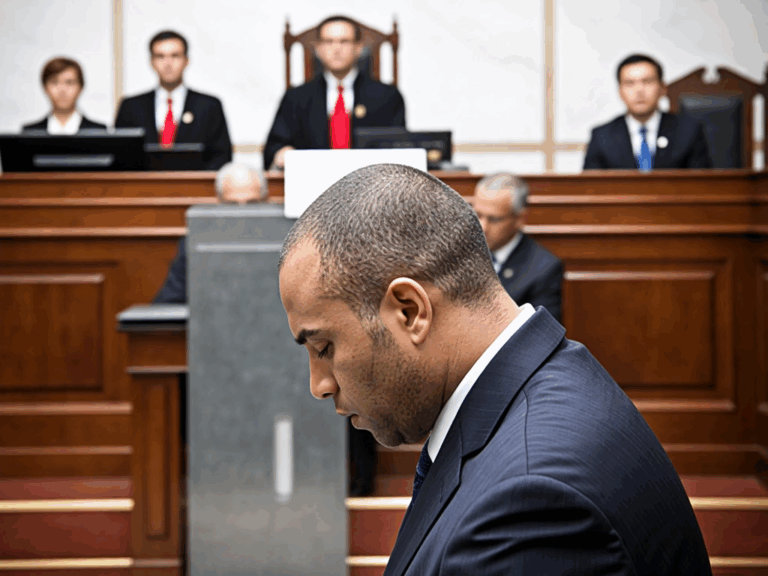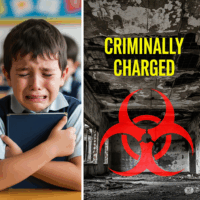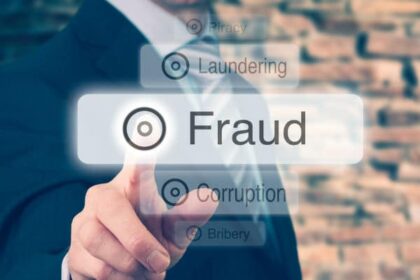Federal Jury Finds Rahul Shah Guilty of Bank Fraud, Money Laundering, and Aggravated Identity Theft in Landmark Case
Chicago, IL – July 2, 2025 – A federal jury has convicted Rahul Shah, a 56-year-old Evanston, Illinois, businessman, for orchestrating a multi-faceted fraud scheme that netted over $55 million from commercial lenders and COVID-19 relief programs, the U.S. Department of Justice announced today. The verdict, delivered after a three-week trial, exposes a brazen campaign of financial deception that exploited pandemic-era aid programs and undermined the integrity of federal lending institutions.
The Scheme Unraveled: How Shah Defrauded Banks and the SBA
Shah, the owner of multiple Chicago-area information technology firms, faced 16 counts of fraud, money laundering, and identity theft. Prosecutors alleged he used a web of fabricated documents, stolen identities, and shell companies to secure loans and lines of credit he was ineligible to receive. The scheme targeted both traditional banks and the U.S. Small Business Administration’s (SBA) Paycheck Protection Program (PPP), a lifeline for millions of businesses during the COVID-19 pandemic.
Key tactics uncovered during the trial included:
- Forged Financial Statements: Shah submitted falsified bank records and audited financial statements to lenders, inflating his companies’ revenues and assets. For example, he presented a fabricated balance sheet claiming 12 million in annual revenue for a firm that actually generated less than 500,000.
- Stolen Identities: To bolster fraudulent PPP applications, Shah used the names and Social Security numbers of unsuspecting individuals, falsely claiming they were employees paid through the program.
- Inflated Payroll Costs: In one application, Shah sought a 441,138 PPP loan by claiming his company paid 1.7 million in 2019 payroll expenses. Internal IRS records later showed the company reported just $280,000 in wages that year.
- Laundering Proceeds: After receiving funds, Shah transferred millions through a network of offshore accounts and luxury purchases, including real estate in Florida and high-end vehicles.
The scheme began to collapse in 2021 when a lender auditing Shah’s accounts discovered discrepancies between his loan applications and federal tax filings. By 2023, federal investigators had traced over $55 million in fraudulent disbursements across 14 financial institutions.
Legal Ramifications: Shah Faces Decades in Prison
Following the guilty verdict on all 16 counts, Shah faces a statutory maximum sentence of 30 years for each bank fraud and false statement charge, 10 years per money laundering count, and mandatory two-year terms for aggravated identity theft. U.S. District Judge Elaine E. Bucklo will determine his sentence on November 13, 2025, after reviewing federal sentencing guidelines.
“This conviction sends a clear message: financial crimes, especially those targeting pandemic relief, will be met with the full force of the law,” said U.S. Attorney Andrew S. Boutros. “Shah’s greed not only stole from taxpayers but also delayed aid to legitimate businesses struggling to survive.”
Investigative Agencies Credited With Dismantling the Fraud Network
The case, led by the FBI’s Chicago Field Office and the SBA Office of Inspector General (OIG), highlights the growing collaboration between federal agencies to combat fraud. “Shah’s conviction is the result of meticulous digital forensics and old-fashioned detective work,” said FBI Special Agent in Charge Douglas DePodesta. “We traced every fraudulent document and every stolen identity to build an airtight case.”
SBA OIG Special Agent in Charge Brady Ipock emphasized the broader impact: “Every dollar stolen from PPP is a dollar taken from a restaurant owner, a hair salon, or a family-owned shop. We will not rest until all perpetrators are held accountable.”
The Broader Crisis: PPP Fraud and the Government’s Response
Shah’s case is part of a larger nationwide crackdown on COVID-19 relief fraud. Since the CARES Act’s passage in 2020, the Justice Department’s Fraud Section has prosecuted over 200 defendants in 130 cases, seizing $78 million in cash, 25 properties, and luxury assets like yachts and high-end art. “This isn’t just about punishing criminals—it’s about restoring public trust,” said Fraud Section Chief Matthew Galeotti.
The PPP, designed to provide forgivable loans to small businesses, became a prime target for fraudsters due to its rapid deployment and relaxed verification processes. Common schemes included:
- Fictitious Employee Rolls: Like Shah, perpetrators often listed fake employees using stolen identities.
- Shell Companies: Fraudsters created non-existent businesses to apply for loans.
- Multi-Lender Applications: Some applied for loans from multiple banks simultaneously.
How the Justice Department Is Fighting Back
The Fraud Section has adopted cutting-edge tools to combat this wave of crime:
- Data Analytics: AI-driven software scans millions of loan applications for anomalies.
- Cross-Agency Task Forces: Teams from the FBI, IRS, and SBA share intelligence in real time.
- Whistleblower Incentives: Rewards of up to 30% of seized assets encourage tipsters to come forward.
“We’ve seen fraudsters grow more sophisticated, but so have we,” said Assistant U.S. Attorney Jasmina Vajzovic. “Shah’s conviction proves that no scheme is too complex to unravel.”
What Businesses and Individuals Need to Know
For legitimate borrowers, the Shah case underscores the importance of accurate reporting. “Even unintentional errors can trigger audits,” warned tax attorney Robert Miller. “Always double-check payroll records and retain supporting documents for at least six years.”
For those who suspect fraud, the Justice Department operates a 24/7 hotline. “Report suspicious activity immediately,” urged NCDF Director Maria Lopez. “Your tip could prevent millions in losses.”
A Call to Action: Report Fraud, Protect Taxpayer Dollars
The public plays a critical role in combating financial crimes. If you witness:
- Suspicious loan applications
- Unusual business activities
- Attempts to bribe lenders
Report via:
- Online: Justice Department Disaster Fraud Form
- Phone: 1-866-720-5721
All tips are confidential, and rewards may apply.
Expert Analysis: The Future of Financial Crime Enforcement
Financial crime experts predict increased scrutiny of digital currencies and cross-border transactions. “Fraudsters are already using cryptocurrency to launder proceeds,” said cybersecurity analyst Dr. Elena Torres. “Regulators are racing to keep pace.”
For Shah, the verdict marks the end of a chapter—but for federal prosecutors, it’s another step in an ongoing battle. “This isn’t the last we’ll see of high-stakes fraud,” Galeotti warned. “But it is a reminder that justice, though sometimes delayed, is inevitable.”
Press Contact:
Justice Department Media Affairs
mailto:media@usdoj.gov
(202) 514-2000
About the U.S. Department of Justice Fraud Section
The Fraud Section leads the nation’s fight against complex white-collar crime, including healthcare fraud, securities violations, and COVID-19 relief abuse. Learn more at www.justice.gov/criminal/fraud.













